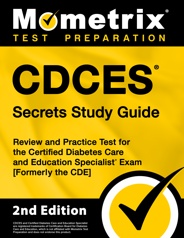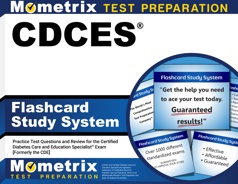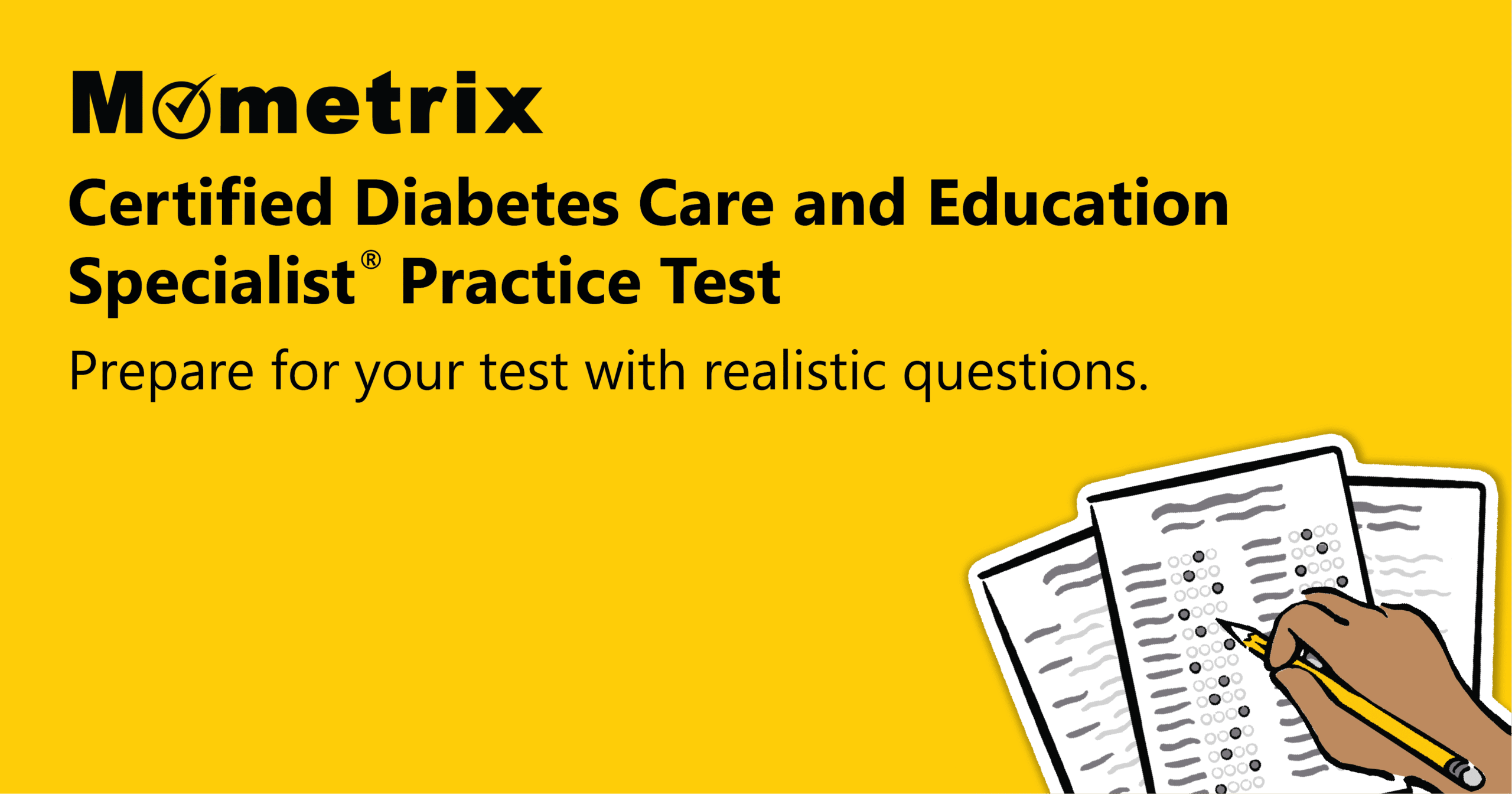The Certified Diabetes Care and Education Specialist® (CDCES®) exam is administered by the Certification Board for Diabetes Care and Education (CBDCE) to assess the diabetes management, prediabetes, and diabetes prevention knowledge of future diabetes care and education specialists.
Click “Start Test” above to take a free CDCES practice test!
Exam Eligibility
To be eligible for the CDCES exam, you must have accrued at least 15 hours of continuing education (diabetes-related) within the last two years. You must also meet specific education and experience requirements:
Professions
The qualifying professions include but are not limited to:
- Registered nurse
- Registered dietitian
- Registered dietitian nutritionist
- Pharmacist
- Physician’s assistant
- Doctor of medicine
- Doctor of osteopathic medicine
Experience
You must meet ONE of the following experience requirements:
- You must have accrued at least 200 hours of DCE experience within the last 12 months
- You must have accrued at least 2,000 hours of DCE experience within the last 5 years
CDCES Exam Outline
The CDCES exam contains 175 multiple-choice questions, 25 of which are unscored, and you will be given a time limit of 4 hours. The unscored questions are used by the CBDCE to validate questions from future exams.
The exam is split into three sections.
I. Assessment (37 scored questions)
The questions in this section assess your knowledge and skills in the following areas:
- Learning (10 questions)
- Physical and psychosocial (12 questions)
- Self-management knowledge and behaviors (15 questions)
II. Care and Education Interventions (105 scored questions)
The questions in this section assess your knowledge and skills in the following areas:
- Person-centered education on self-care behaviors (58 questions)
- Disease process and approach to treatment (22 questions)
- Evaluation, documentation, and follow-up (8 questions)
- Individualized education plan (17 questions)
III. Standards and Practices (8 scored questions)
The questions in this section assess your knowledge and skills in the following areas:
- Current NSDSMES standards
- Current National DPP standards
- Population health strategies
- Collaboration with other healthcare professionals
- Advocation for people with diabetes
- Evidence-based care and education
- The impact of disparities
- Principles of diversity, equity, and inclusion
Check Out Mometrix's CDCES Study Guide
Get practice questions, video tutorials, and detailed study lessons
Get Your Study Guide
Registration
To register for the exam, you must submit an application to the CBDCE through PSI. Your application must include the $350 examination fee and any applicable documentation for proof of eligibility.
Once your application is approved, you will be given instructions on how to set up an exam appointment with PSI.
CDCES Online Prep Course
If you want to be fully prepared, Mometrix offers an online CDCES prep course designed to give you everything you need to succeed!
Here’s what you’ll find in the CDCES course:
Everyone learns differently, so we’ve tailored the CDCES online prep course to ensure every learner has what they need to prepare for the CDCES exam.
Click below to check it out!
Test Day
Regardless of your exam-taking method, you will be asked on test day to present two current and valid forms of identification, one of which must contain your photograph. Both forms of identification must have your signature for verification.
In-person Testing
On the day of your exam, you should arrive about 30 minutes early for your scheduled appointment time. If you are more than 15 minutes late, you will not be admitted, and your test will be canceled.
Before the exam begins, you must secure any personal items (including your phone, wallet, and keys) in a provided locker. A pencil and a sheet of paper are provided, so there is no need to bring those items with you to the testing center.
During the exam, you can take a break whenever you need to, but the timer will keep going during your break.
Live Remote Proctoring
You should log in to your account 10-15 minutes before your examination appointment. Once you are logged in, a proctor will ask you to scan your testing space with your webcam to ensure your testing area is clear of books, notes, and electronic devices. You are allowed a pencil and a blank sheet of paper on your desk; all other items need to be removed from the area.
The launch button for the exam is enabled when the exam and proctor are ready.
How the Exam is Scored
Your final score for this exam is calculated using a scale-based scoring system. This system takes the number of questions you answered correctly (your raw score) and converts it to a scaled score ranging from zero to 99. The minimum passing score is a scaled score of 70.
You will receive a preliminary score report before you leave the testing center, or by email if you take the exam remotely. On your score report, you will see your pass/fail status, your final scaled score, and your raw score for each of the three content areas.
Retaking the Exam
If you do not pass the exam, you may retake it as many times as you need. You will need to reapply and pay the full exam fee for each retake.
Check Out Mometrix's CDCES Flashcards
Get complex subjects broken down into easily understandable concepts
Get Your Flashcards
FAQs
Q
How many questions are on the CDCES exam?
A
There are 175 multiple-choice question on the exam.
Q
How long is the CDCES exam?
A
The time limit for the exam is 4 hours.
Q
What is the passing score for the CDCES exam?
A
To pass the exam, you must achieve a scaled score of at least 70.
Q
How much does the CDCES exam cost?
A
The examination fee is $350.
CDCES and Certified Diabetes Care and Education Specialist are registered trademarks of Certification Board for Diabetes Care and Education, which is not affiliated with Mometrix Test Preparation and does not endorse this page.





